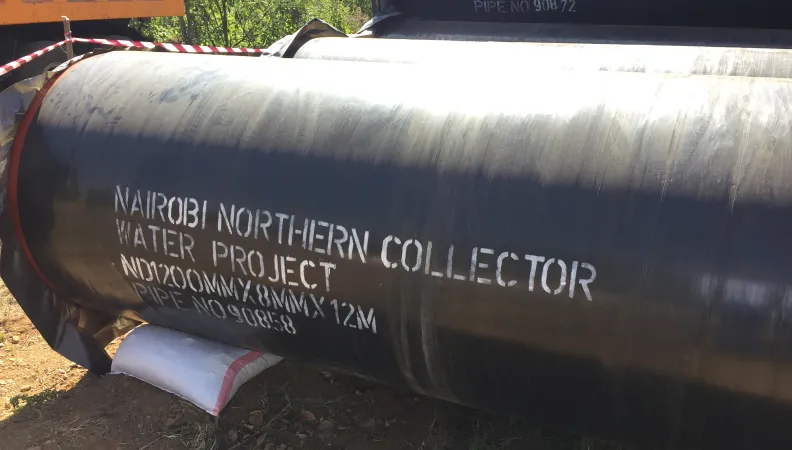Share the page
Extending the Nairobi Potable Water System (Northern Collector)
Project


-
Project start date
-
-
Project duration
-
25 years
-
AFD financing amount
-
€ 100000000
-
Country and region
-
Location
-
Nairobi
-
Type of financing
-
Partners
-
World Bank, KfW, The European Union
-
Beneficiaries
-
Kenyan Government
This project is the implementation of phase 1 of the master plan for the extension of potable water production system in Nairobi presented in 2012.
Context
In a context where the population of Kenya, especially its capital city, is experiencing a rapid growth (+4% per year for Nairobi on the average), there is need to give special attention to basic services, water in particular. The capacity of the system of 500,000 m3/day in 2013, restored through previous AFD projects, is insufficient and therefore cannot meet current and future needs. Various options were examined and presented in 2012 as part of the project’s master plan of expanding potable water production system for Nairobi and its region.
Description
Phase 1 of the master plan consists of the construction of: a raw water collection structure at the northern rivers Maragua, Gikigie and Irati (the northern collector); a pipeline from the existing Thika dam to the future treatment plant; a new treatment plant in Kigoro; a pipeline for treated water to the existing Kabete reservoir located on the heights of the city to the northwest. In addition to the production works, this project will also aim to extend the distribution network, particularly to developing neighbourhoods and poor neighbourhoods. A technical assistance component is also planned to assist Nairobi Water, in particular on pricing and unbilled water aspects.
Impacts
In a city where water is now rationed and distributed, where each area takes its turn, the project will produce an additional 120,000 m3 of water, or +25% and extend the network and service to new consumers. In addition, the gravitational transfer of this additional production to the city's water point will have a significant impact in terms of energy consumption.


